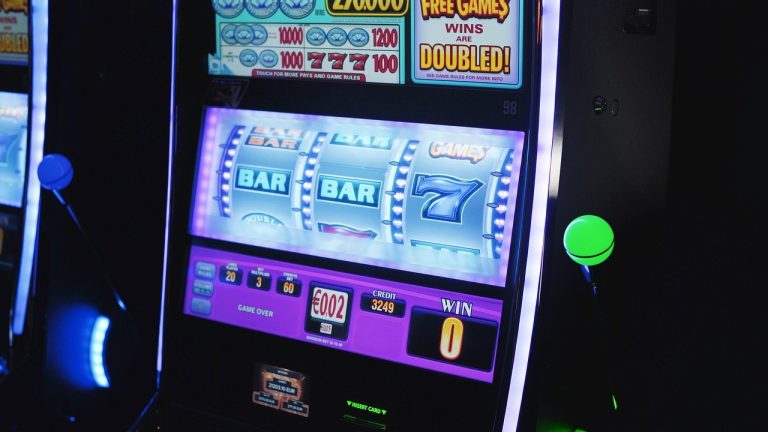Papua New Guinea Implements Nationwide Ban on Online Slot Games to Protect Citizens
Government Takes Decisive Action Against Digital Gambling
In a bold move to safeguard its population from the growing dangers of online gambling, the government of Papua New Guinea has officially announced a nationwide ban on online slot games. The legislation, passed in September 2025, is part of a broader initiative to address rising concerns about gambling addiction, financial exploitation, and the social consequences of unregulated digital entertainment platforms. The ban applies to all citizens, regardless of age or location, and targets both domestic and international gambling operators that offer slot-based games over the internet.
The decision comes amid reports of increasing numbers of Papua New Guineans, particularly in urban centers like Port Moresby and Lae, becoming involved in online gambling. With smartphone use and internet access expanding rapidly across the country, online slot games have gained traction due to their accessibility, visual appeal, and the promise of quick financial rewards. However, government officials and mental health experts argue that these platforms are often predatory and addictive by design, posing a threat to public well-being and long-term financial stability.
Warnings from Health and Social Welfare Sectors
Before the ban was implemented, numerous local health organizations and social advocacy groups had raised alarms over the unchecked rise of online gambling in Papua New Guinea. Clinics and counseling centers reported a steady increase in patients exhibiting symptoms of gambling addiction, including anxiety, depression, loss of income, and deteriorating family relationships. Many of these cases involved individuals who had been lured into online slot games by aggressive marketing, especially on social media platforms where operators promote flashy graphics and instant winnings.
Officials from the Department of Health emphasized that gambling addiction is not just a personal issue but a growing public health concern. They warned that left unregulated, online situs gacor platforms would likely lead to a rise in mental health disorders, increase poverty rates, and place additional stress on families and communities that are already facing socioeconomic challenges. In response, the government stated that prevention through prohibition was the most responsible and effective course of action.
Strict Enforcement Measures Introduced
To implement the ban, the government has introduced a multi-agency enforcement strategy involving the National Information and Communications Technology Authority, financial regulators, and law enforcement. All internet service providers in Papua New Guinea are now required to block access to websites and mobile applications that offer slot machine-style games. Financial institutions, including banks and mobile payment operators, must monitor and block any transactions related to illegal online gambling activities.
Any citizen found promoting or participating in such platforms will face legal consequences under the new regulations. These include substantial fines, account suspensions, and, in cases of repeated violations, potential imprisonment. Additionally, the government has opened a national hotline where citizens can report suspected illegal gambling operations or online promotions targeting Papua New Guinean users.
Cultural and Religious Support for the Ban
The move has received widespread support from various segments of society, particularly from traditional leaders and religious communities. In Papua New Guinea, gambling is often viewed through a moral and spiritual lens, with many faith-based organizations condemning it as a destructive habit that undermines personal discipline and family responsibility. Churches and community leaders have applauded the government’s proactive stance, describing the ban as an effort to uphold traditional values and protect the social fabric of the nation.
This cultural support has played a significant role in generating public acceptance of the new law. In several rural provinces, elders have even begun incorporating anti-gambling messages into community meetings and public ceremonies, reinforcing the idea that slot gaming, particularly in its online form, is incompatible with Papua New Guinean values.
Challenges in Regulation and Digital Enforcement
Despite the strong legal framework, enforcing a total ban on online slot games in a rapidly digitizing country presents real challenges. Many online gambling platforms operate from jurisdictions outside the reach of Papua New Guinean law. They often rebrand, relocate servers, or use slot88 encrypted technologies to avoid detection and blocking. Some users, especially tech-savvy individuals, may attempt to bypass national restrictions using VPNs or anonymous payment systems.
Government officials acknowledge these challenges but maintain that even partial disruption can significantly reduce the harm caused by digital gambling. They have pledged to continue updating enforcement tools and working with international partners to monitor offshore platforms that target Papua New Guinean users. The government is also investing in public education campaigns to help citizens recognize the risks of online gambling and the tactics used by operators to manipulate users into continued spending.
Focus on Prevention and Rehabilitation
In addition to prohibition, the Papua New Guinean government is placing an emphasis on prevention and recovery. A national campaign has been launched to raise awareness about gambling addiction, its warning signs, and where to seek help. Mental health clinics are being equipped with resources to treat gambling-related disorders, and community-based programs are being developed to support individuals and families affected by addiction.
The Department of Education is also being involved in long-term efforts, with plans to introduce digital literacy and responsible online behavior into school curricula. These programs are designed to prepare the younger generation to navigate online spaces safely and with a critical understanding of online risks, including those posed by gambling apps and websites.


